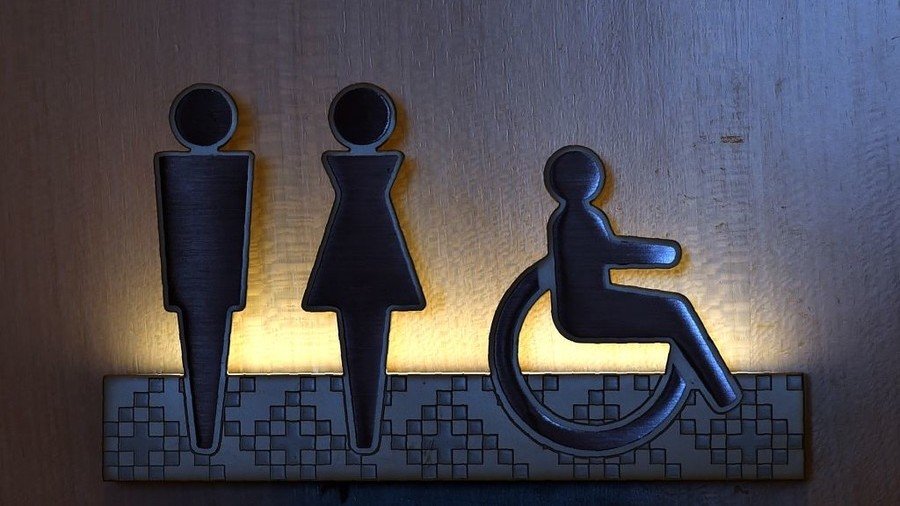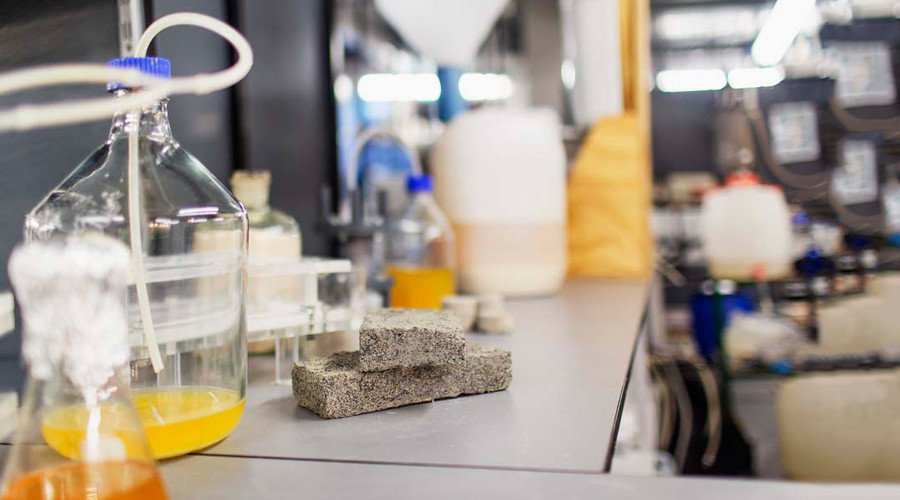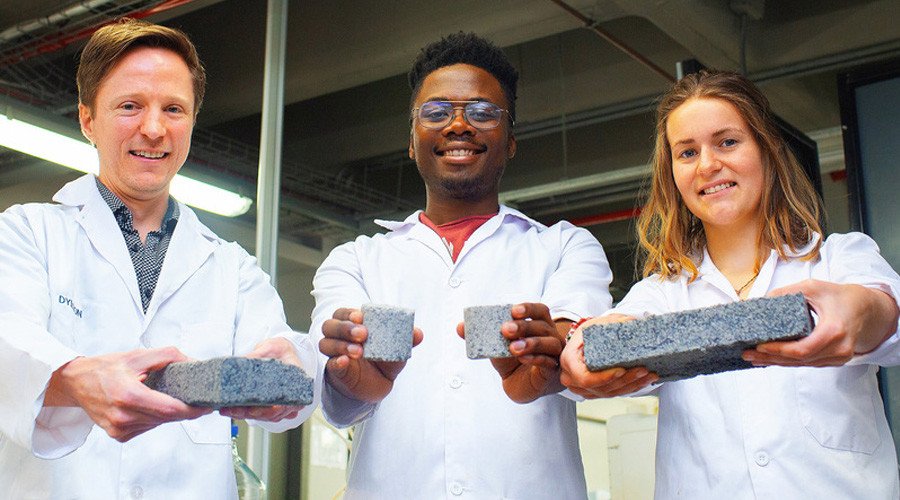Urine luck! South Africa turns human pee into construction material

South Africa is a whizz at slashing the environmental impact of construction, as bricks made from human urine are set to come on stream thanks to students at the University of Cape Town.
The young researchers managed to combine people’s urine, which had been collected from specially designed male urinals at the university’s engineering building, with sand and bacteria.
A process called microbial carbonate precipitation reportedly allows the bricks to solidify at room temperature, unlike traditional bricks that are baked in high-temperature kilns, producing a lot of carbon dioxide. Moreover, the bio-brick process produces nitrogen and potassium as a by-product, which can be used as components in commercial fertilisers.

“The bio-bricks are created through a natural process called microbial carbonate precipitation, not unlike the way seashells are formed. Loose sand is colonized with bacteria that produce urease. The urease breaks down the urea in urine while producing calcium carbonate through a chemical reaction,” Senior Lecturer in Water Quality at UCT Dyllon Randall said, commenting on the matter.
“This cements the sand into any shape, whether a solid column or, now for the first time, a rectangular building brick,” he added.
The strength and shape of the bio-bricks can be altered as required. The newly invented construction material can be 40-percent stronger than limestone brick, according to Randall.

“The longer you allow the little bacteria to make the cement, the stronger the product is going to be,” he said, noting that the process might be further optimized.
According to Randall, urine is liquid gold. “By volume, urine accounts for less than one percent of domestic wastewater, but it contains 80 percent of the nitrogen, 56 percent of the phosphorus and 63 percent of the potassium found in wastewater,” he said.
For more stories on economy & finance visit RT's business section














